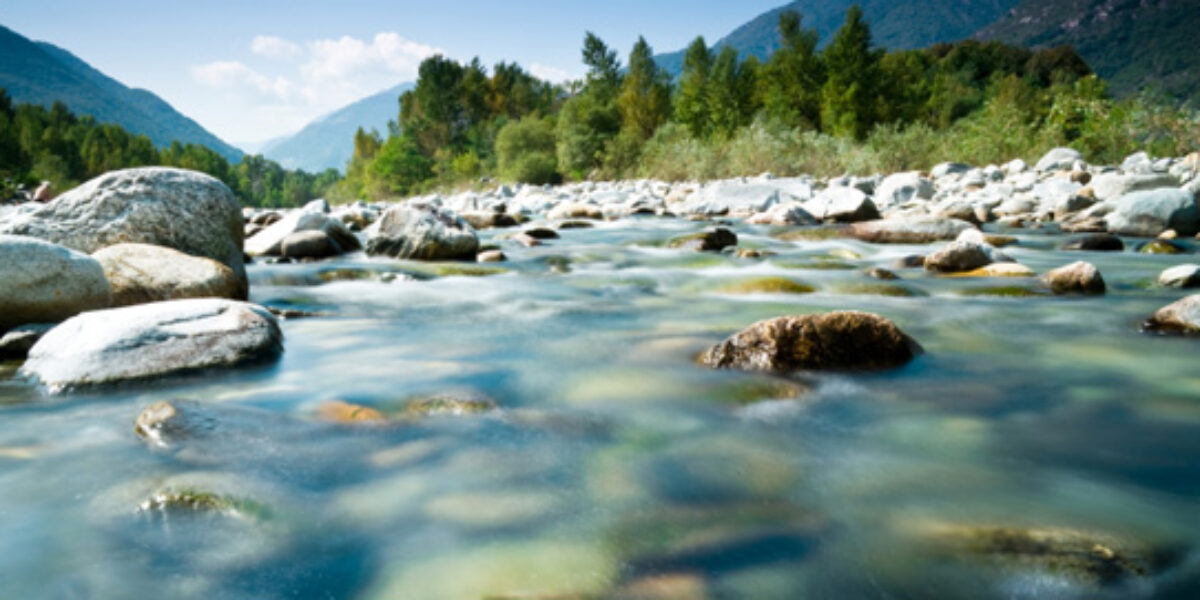Many North Americans are well aware that our lands and waters are being depleted of the very natural resources that sustain us. We struggle with the tension between conservation and consumerism, not wanting to acknowledge that our own consumption contributes to the depletion of resources.
Many North Americans are well aware that our lands and waters are being depleted of the very natural resources that sustain us. We struggle with the tension between conservation and consumerism, not wanting to acknowledge that our own consumption contributes to the depletion of resources.
Management and dispersal of natural resources was an issue in Jesus’ day as well. Jesus calls his followers to live lightly on the earth, not hoarding resources but instead using only what they need. In this way, all people and all of creation can continue to flourish.
“Don’t be greedy! Owning a lot of things won’t make your life safe” (Luke 12:15, CEV).
Jesus taught that there is no security in material things. Safety comes not through storing up resources, but rather through relying on God’s provision for all of creation. The Parable of the Rich Fool explains this point: a rich man’s farm produced a bumper crop one year, yielding so much grain that the man didn’t have space to store it. He tore down his barns to build bigger ones so that he could store the grain, relax, and live off his savings. But God said, “You fool! Tonight you will die. Then who will get what you have stored up?”(Luke 12:20, CEV). This parable suggests that resources, when they are available, are to be distributed rather than hoarded (Luke 12:13-21).
“Don’t worry about having something to eat or wear… Look at the crows! They don’t plant or harvest, and they don’t have storehouses or barns. But God takes care of them” (Luke 12:22-24, CEV). Jesus continues his teaching, challenging people to have faith in God’s provision for them just as plants and animals do (Luke 12:22-31, Matthew 6:25-34). The bottom line: “Don’t keep worrying about having something to eat or drink… Your Father knows what you need. But put God’s work first, and these things will be yours as well” (Luke 12:29-31, CEV).
These lessons not only teach what we should not do; they also teach what we should do: put God’s work first, and our needs will be filled. The whole earth is interconnected, and humans must support one another and respect the needs of the rest of creation.
In the first instructions given to humans, we are told to rule the creation (Genesis 1:28), and to take care of and look after the Garden of Eden (Genesis 2:15). To rule the creation is to be a wise and benevolent ruler, looking out for the welfare of all parts of the earth. To take care of the garden is to help it flourish while providing food for people and animals. It is clear that discerning ways to balance the use of natural resources in a sustainable way is God’s work.
“The kingdom is also like what happened when a man went away and put his three servants in charge of all he owned” (Matthew 25:14, CEV). God created a world in which life can flourish, and entrusted humans with its care. The apocalyptic story often known as the Parable of the Talents, or A Story about Three Servants (Matthew 25:14-30; cf. “A Story about Ten Servants” in Luke 19:11-27) is an allegory for our temporary stewardship of the created world. In the story, a master puts his servants in charge of all he owns, giving each of them money to keep while he is away. Two servants invest and grow the money, while the third hides the money in the ground, not helping it to grow at all. The master praises the first two servants, and banishes the third. Likewise, Jesus suggests that humans are called to do more than simply conserve God’s resources—rather, they are to help them flourish and increase (Matthew 25:14-30). People of faith must fully commit themselves to caring for the land and helping all of creation to flourish until the master returns.
Looking at the Text
Read about God’s provision for creation in Luke 12:22-31 and Matthew 6:25-34. How do you feel about these passages? Are they reassuring, troubling, or something else?
Read “A Story about Three Servants” in Matthew 25:14-30 (cf. Luke 19:11-27). If the money in the story represents the resources of the created world, what are the implications for our current economic systems?
Looking at Our World
Some Christians believe that God gave us the creation to use as we wish, without regard for the impact of human activity upon natural ecosystems. They think that because we are called to focus our attention upon God’s realm this world is of little importance. What are the implications of this mindset for the environment? How does environmental degradation hurt humans, particularly the poor?
Jenny Phillips writes resources for outdoor ministries and churches. She has a Master of Divinity from Union Theological Seminary in New York, NY.




